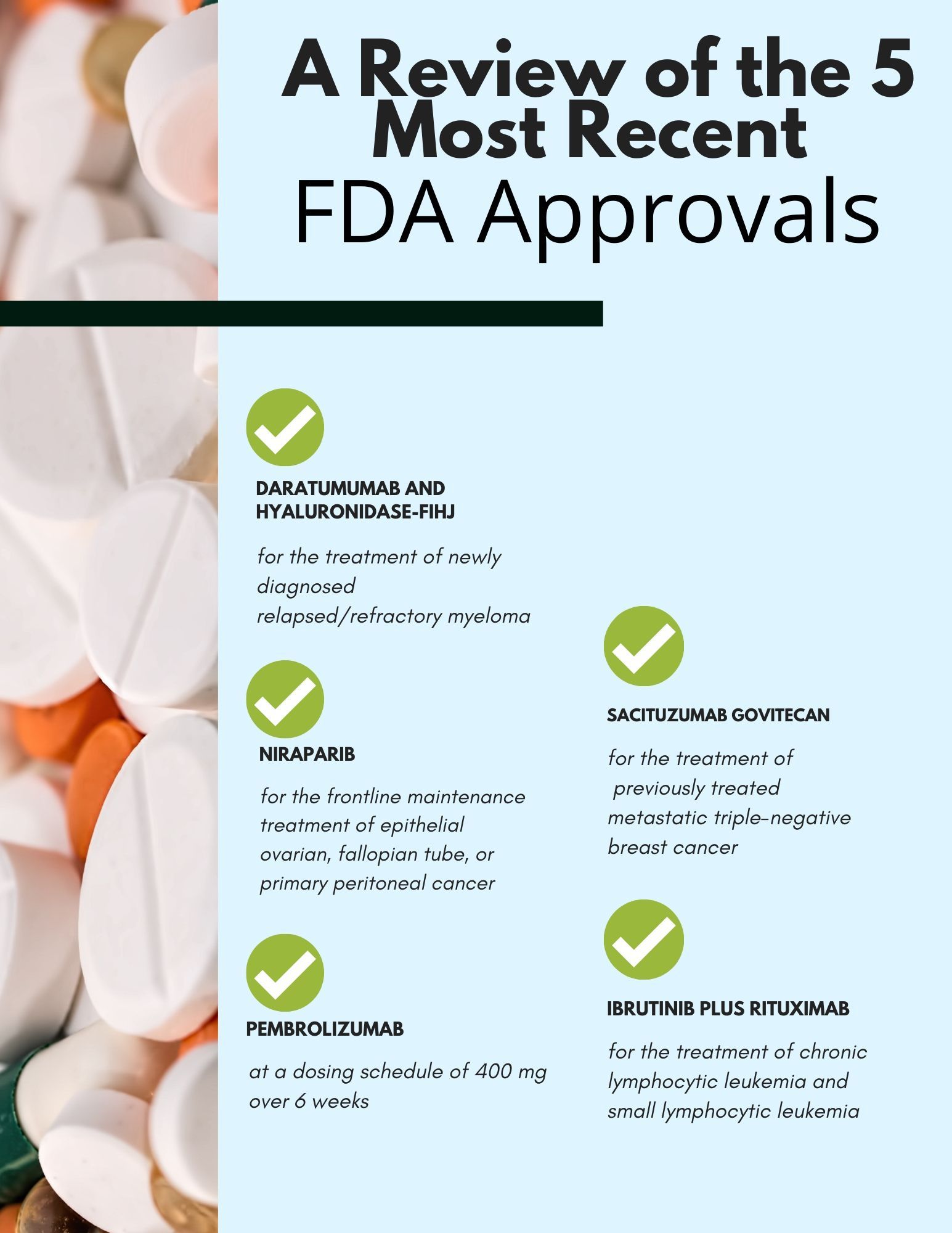ICYMI: A Rundown of the 5 Latest FDA Approvals
Over the last few weeks, the FDA was busy reviewing and approving new cancer treatments.

While many areas of the world seem to be slowing down as a result of the COVID-19 pandemic, the FDA is moving ahead at full force when it comes to reviewing and approving new regimens for the treatment of cancer.
Some approvals are even being approved months ahead of time, thanks to the Real-Time Oncology Review (RTOR) program, which expedites the review for drugs that are likely to demonstrate substantial improvements over available therapy; have straightforward study designs; and have endpoints that can easily be interpreted, according to the FDA.
In case you missed it, here is a rundown of the 5 most recent FDA approvals.
- Daratumumab and hyaluronidasefihj for myeloma. The regimen was approved for 4 different indications for patients with newly diagnosed relapsed/refractory multiple myeloma. While the drugs had promising overall response rates, nurses should look out for some common adverse events (AEs), including upper respiratory tract infection.
- Niraparib for maintenance epithelial ovarian, fallopian tube, or primary peritoneal cancer. The PARP inhibitor is for patients who have complete or partial response to frontline platinumbased chemotherapy. The PRIMA trial showed that niraparib (Zejula) bested placebo in progression-free survival.
- New pembrolizumab dosing schedule. Providers can now prescribe pembrolizumab (Keytruda) to patients at a 400 mg dose to be administered every 6 weeks — and that goes for all indications of the immunotherapy agent.
- Sacituzumab govitecan for triplenegative breast cancer. Sacituzumab govitecan (Trodelvy) was approved for adults with metastatic triplenegative breast cancer who had at least 2 prior therapies for metastatic disease, after a phase I/II study showed that the antibody-drug conjugate elicited a response in about a third of patients, with a clinical benefit rate of 45.4% Common AEs for nurses to look out for include neutropenia, anemia, decreased white blood cell count, diarrhea, and fatigue and asthenia.
- Ibrutinib plus rituximab for CLL and SLL. The twodrug regimen of ibrutinib (Imbruvica) and rituximab (Rituxan) was approved for adults with chronic lymphocytic leukemia (CLL) or small lymphocytic leukemia (SLL). Recommended dosing is 420 mg of ibrutinib taken orally (with water) once a day, with rituximab initiated in cycle 2 at 50 mg/m2 on day 1; 325 mg/m2 on day 2; and 500 mg/m2 on day 1 and 5 subsequent cycles, for 6 total cycles.
Subscribe to our email list, and be the first one to know about breaking FDA approvals and the latest news in oncology nursing.
Shared Model of Care Post-HCT Offers Safe Follow-Up, Reduces Patient Burden
Published: March 19th 2025 | Updated: March 19th 2025Alternating post-HCT care between specialized facilities and local cancer centers produced noninferior non-relapse mortality and similar quality of life to usual care.



